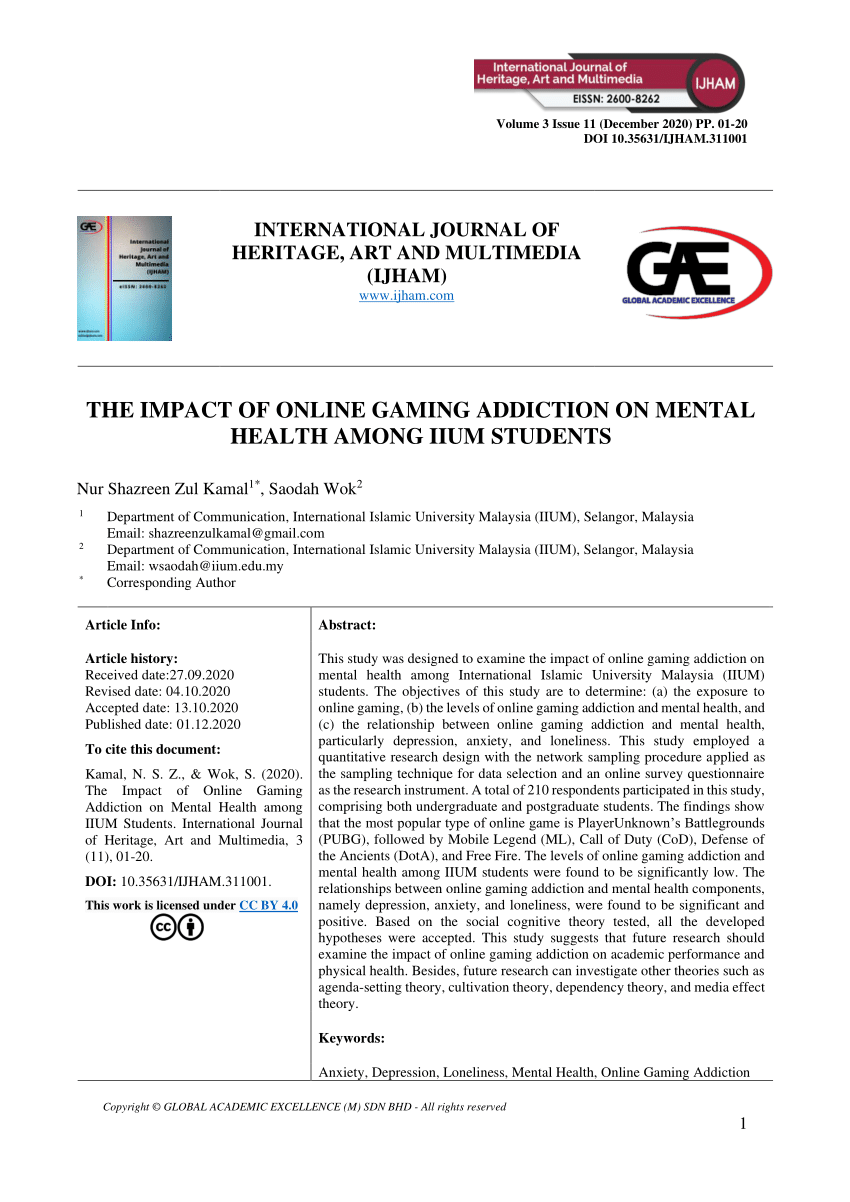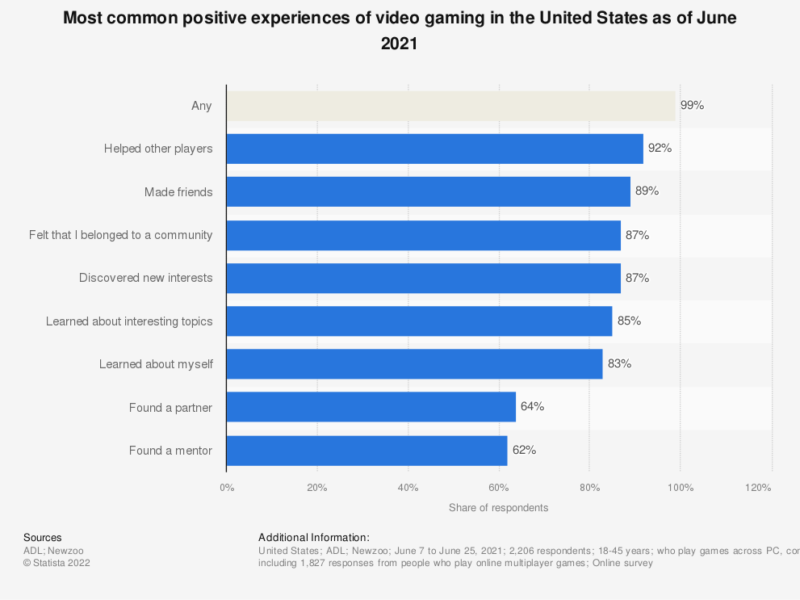Introduction
Overview of online gaming
Online gaming has become a popular form of entertainment among people of all ages. It involves playing video games over the internet with other players from around the world. Online gaming has evolved significantly over the years, with advancements in technology and the availability of high-speed internet. It offers a wide range of games, from simple puzzle games to complex multiplayer games. The popularity of online gaming has led to the creation of online gaming communities, where players can interact with each other and form friendships. However, excessive online gaming can have negative effects on mental health, which will be discussed in the following sections.
Importance of discussing mental health in relation to online gaming
It is crucial to discuss mental health in relation to online gaming because of the significant impact it can have on individuals. Online gaming can be a source of enjoyment and social interaction, but it can also lead to addiction, isolation, and other mental health issues. It is important to recognize the potential risks and take steps to prevent negative consequences. By discussing mental health in relation to online gaming, we can raise awareness, provide support, and promote healthy habits for gamers. It is essential to prioritize mental health in the gaming community to ensure that individuals can enjoy the benefits of online gaming without sacrificing their well-being.
Purpose of the article
The purpose of this article is to explore the impact of online gaming on mental health. With the increasing popularity of online gaming, it is important to understand the potential effects it may have on individuals’ mental well-being. This article will examine the research conducted on the topic, including both positive and negative outcomes. Additionally, it will provide insights into the factors that contribute to the impact of online gaming on mental health, such as addiction, social isolation, and the potential benefits of gaming as a coping mechanism. By understanding the relationship between online gaming and mental health, we can better support individuals who engage in this activity and promote healthy gaming habits.
Positive Effects of Online Gaming on Mental Health
Improvement in cognitive skills
Online gaming has been found to have a positive impact on cognitive skills. Studies have shown that playing video games can improve problem-solving abilities, spatial awareness, and decision-making skills. This is because many games require players to think critically and strategically in order to progress through levels or complete objectives. Additionally, online gaming can also improve hand-eye coordination and reaction time, which can be beneficial in other areas of life. However, it is important to note that excessive gaming can have negative effects on mental health, so moderation is key. Overall, online gaming can be a fun and beneficial way to improve cognitive skills.
Reduction in stress and anxiety
Online gaming has been found to have a positive impact on reducing stress and anxiety levels. Engaging in online games can provide a temporary escape from real-life stressors and offer a sense of control and accomplishment. Additionally, online gaming can provide a social outlet and a sense of community, which can help combat feelings of loneliness and isolation. Studies have shown that playing online games can lead to a decrease in cortisol levels, a hormone associated with stress. However, it is important to note that excessive gaming can have negative effects on mental health, and moderation is key.
Socialization and community building
Online gaming has the potential to foster socialization and community building among players. Many online games require players to work together in teams or guilds to achieve common goals. This can lead to the formation of strong bonds and friendships between players who may have never met in person. Additionally, online gaming communities often have forums or chat rooms where players can discuss game strategies, share tips, and offer support to one another. For individuals who may struggle with social anxiety or have difficulty making friends in traditional settings, online gaming can provide a safe and welcoming environment to connect with others who share similar interests. However, it is important to note that excessive gaming can also lead to social isolation and withdrawal from real-life social interactions, so moderation is key.
Negative Effects of Online Gaming on Mental Health
Addiction and its impact on mental health
Addiction to online gaming can have a significant impact on mental health. It can lead to social isolation, lack of sleep, and poor academic or work performance. The constant need to play can also lead to neglect of personal hygiene and nutrition, which can further exacerbate mental health issues. Additionally, addiction to online gaming can cause anxiety, depression, and other mood disorders. It is important to recognize the signs of addiction and seek help if necessary to prevent further negative impacts on mental health.
Increased aggression and hostility
Online gaming has been linked to increased aggression and hostility in some individuals. This is particularly true for those who spend excessive amounts of time playing violent games. Studies have shown that prolonged exposure to violent content can desensitize individuals to violence and lead to an increase in aggressive behavior. Additionally, the competitive nature of online gaming can also contribute to feelings of hostility and anger, especially when players feel that they have been unfairly treated or cheated. It is important for individuals to be aware of the potential negative effects of online gaming on their mental health and to take steps to mitigate these risks. This may include setting limits on gaming time, choosing non-violent games, and seeking professional help if necessary.
Isolation and loneliness
Isolation and loneliness are common issues that arise from excessive online gaming. Players may become so engrossed in the game that they neglect their social lives and relationships. This can lead to feelings of loneliness and isolation, which can have a negative impact on mental health. Additionally, online gaming can create a false sense of social connection, leading players to believe they are interacting with others when in reality they are not. This can further exacerbate feelings of loneliness and isolation, as players may feel disconnected from the real world and struggle to form meaningful relationships outside of the game. It is important for individuals who engage in online gaming to be mindful of their social lives and to prioritize real-world relationships in order to maintain good mental health.
Factors that Influence the Impact of Online Gaming on Mental Health
Age and gender
Age and gender are important factors to consider when examining the impact of online gaming on mental health. Studies have shown that younger individuals are more likely to engage in online gaming and may be more susceptible to negative effects such as addiction and social isolation. Additionally, gender differences have been observed in the types of games played and the motivations for playing. For example, males tend to play more violent and competitive games, while females may be more drawn to social and cooperative games. Understanding these demographic differences can help inform interventions and support for individuals who may be at higher risk for negative mental health outcomes related to online gaming.
Duration and frequency of gaming
The duration and frequency of online gaming can have a significant impact on mental health. Research has shown that individuals who spend excessive amounts of time gaming may experience negative consequences such as decreased social interaction, poor academic performance, and increased risk of addiction. Additionally, frequent gaming can lead to sleep disturbances and a lack of physical activity, which can contribute to feelings of depression and anxiety. It is important for individuals to monitor their gaming habits and ensure that they are engaging in other activities that promote mental and physical well-being.
Type of game and its content
The type of game and its content can have a significant impact on mental health. Games that involve violence, aggression, and gore can lead to desensitization and increase aggressive behavior in players. On the other hand, games that promote problem-solving, creativity, and social interaction can have a positive impact on mental health. Additionally, games that require excessive amounts of time and effort can lead to addiction and negatively affect mental health. It is important for individuals to be mindful of the type of games they are playing and how it may be affecting their mental health.
Preventive Measures and Interventions
Setting limits and boundaries
Setting limits and boundaries is crucial when it comes to online gaming and mental health. It is important to establish a schedule and stick to it, allowing for breaks and time for other activities. Parents should also set limits for their children, ensuring that they are not spending excessive amounts of time gaming. Additionally, it is important to set boundaries with online friends and strangers, avoiding toxic or negative interactions that can impact mental health. By setting limits and boundaries, individuals can enjoy the benefits of online gaming while also protecting their mental health.
Encouraging physical activity and social interaction
Encouraging physical activity and social interaction can be a great way to counteract the negative effects of online gaming on mental health. Many online games require players to sit for extended periods, leading to a sedentary lifestyle and potential health problems. Encouraging physical activity, such as going for a walk or participating in a sport, can help combat these negative effects. Additionally, social interaction is important for mental health and can be fostered through group activities or joining a gaming community with shared interests. Encouraging players to take breaks and engage in physical and social activities can lead to a more balanced and healthy lifestyle.
Seeking professional help and support
If you or someone you know is struggling with mental health issues related to online gaming, it is important to seek professional help and support. This can include talking to a therapist or counselor who specializes in gaming addiction or mental health, joining a support group for individuals with similar experiences, or reaching out to a helpline for immediate assistance. It is important to remember that seeking help is a sign of strength and can lead to positive changes in mental health and overall well-being.
Conclusion
Summary of the impact of online gaming on mental health
In summary, online gaming can have both positive and negative impacts on mental health. On one hand, it can provide a sense of community and social connection, as well as opportunities for problem-solving and skill-building. On the other hand, excessive gaming can lead to addiction, social isolation, and negative effects on mood and cognitive function. It is important for individuals to monitor their gaming habits and seek help if they feel their mental health is being negatively affected. Additionally, game developers and policymakers can take steps to promote responsible gaming and reduce the potential harm to mental health.
Importance of responsible gaming
The importance of responsible gaming cannot be overstated. While online gaming can be a fun and engaging activity, it can also be addictive and have negative impacts on mental health. Responsible gaming involves setting limits on the amount of time and money spent on gaming, as well as taking breaks and seeking help if necessary. It is important for individuals to be aware of their own gaming habits and to take steps to ensure that they are not negatively impacting their mental health or overall well-being. Additionally, game developers and platforms have a responsibility to promote responsible gaming practices and provide resources for those who may be struggling with addiction or other mental health issues related to gaming. By prioritizing responsible gaming, we can ensure that online gaming remains a positive and enjoyable activity for all.
Future directions for research and intervention
Future directions for research and intervention in the field of online gaming and mental health are crucial to address the growing concerns about the negative impact of excessive gaming on individuals. Researchers need to explore the underlying mechanisms of gaming addiction and its impact on mental health. Additionally, interventions should be developed to help individuals with gaming addiction, including cognitive-behavioral therapy and mindfulness-based interventions. Furthermore, parents, educators, and mental health professionals should be educated about the potential risks of excessive gaming and how to identify and address gaming addiction in individuals. Overall, a collaborative effort is needed to address the complex issue of online gaming and mental health.


